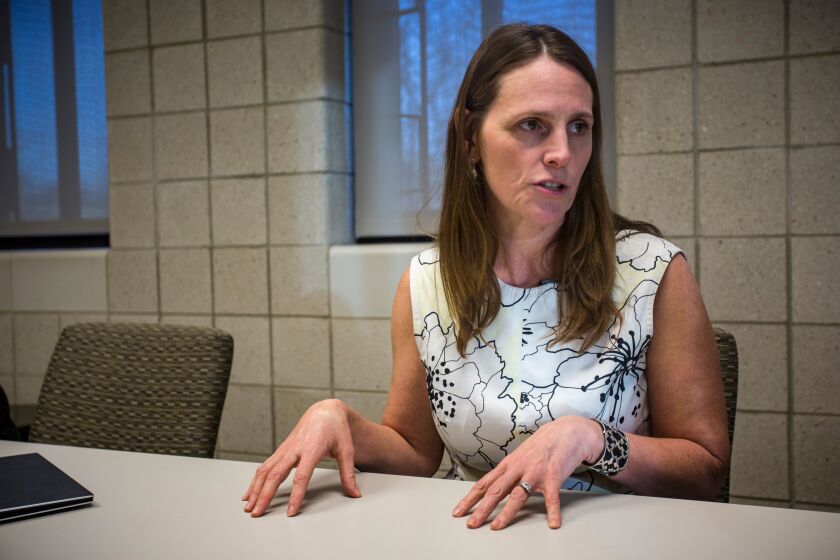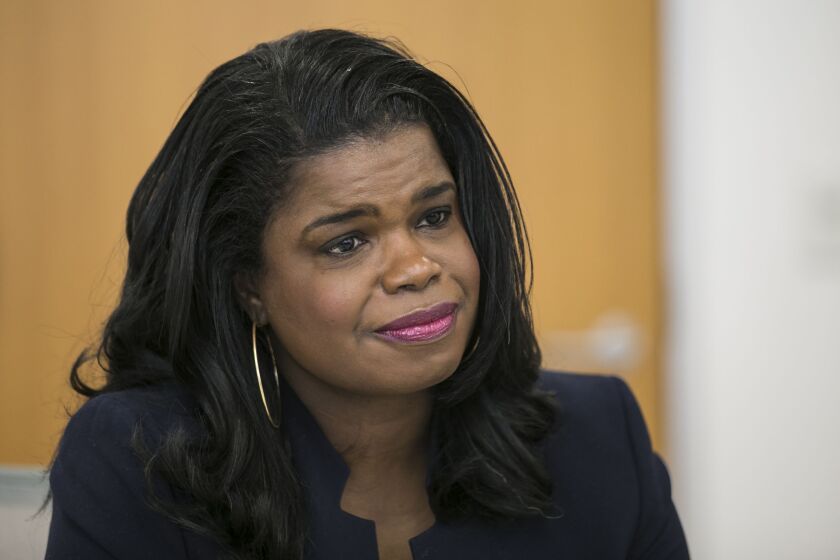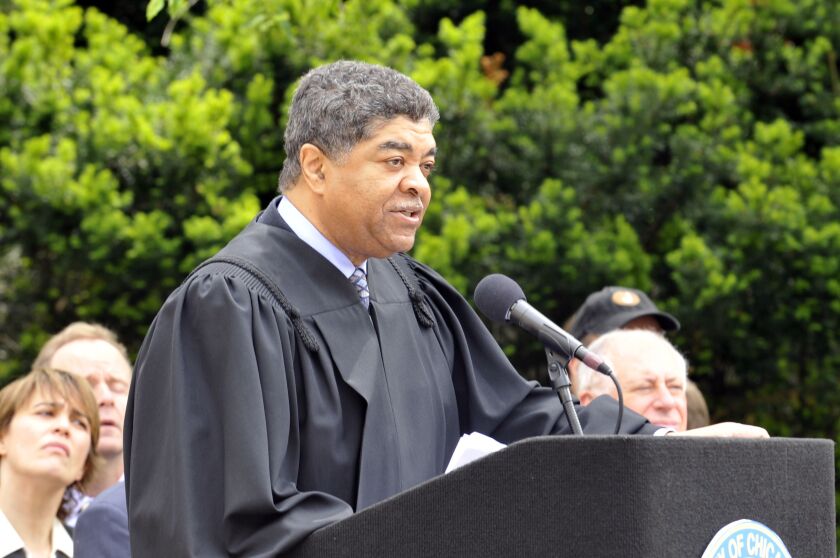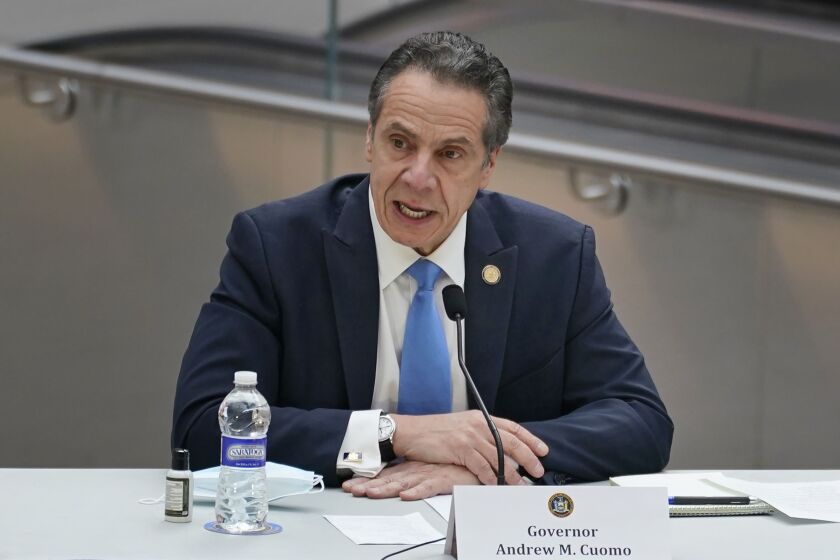Legislators have taken a giant step toward reforming the criminal justice system in Illinois by approving a bill that would do away with cash bail, but the experiences of other states that tried similar reforms show it’s not a sure thing.
If Gov. J.B. Pritzker signs the measure into law, Illinois will become one of a handful of states that have enacted major changes regarding cash bail.
California and New York passed similar laws in recent years, but they were dropped because of public opposition. New Jersey, which was one of the first states to eliminate cash bail, under a reform passed in 2014, has weathered challenges and is seen as a success.
“Other jurisdictions who have implemented similar reforms offer important lessons that we would be wise to pay attention to — both in terms of what to do and what not to do,” said Roseanna Ander, director of the University of Chicago Crime Lab.
The Illinois Senate passed a wide-ranging reform bill before 5 a.m. Wednesday, and the House approved the measure hours later.
A coalition of Illinois law-enforcement groups said the Senate vote was taken “under the cover of darkness” and that more than 112,000 people signed a petition opposing the bill.
But Cook County State’s Attorney Kim Foxx, Sheriff Tom Dart and other law-enforcement officials viewed as progressive Democrats have praised the bail-reform provision of the bill.
Because the bail reform wouldn’t take effect until 2023, Foxx said there’s time for Cook County to invest in services needed to monitor and assist a larger group that would remain free while awaiting trial. There’s a need for more pretrial probation officers to track defendants and more money for drug and mental treatment, she said.
New York and California didn’t have a “sufficient ramp-up period” for their bail reforms, Foxx said. “No disrespect to New York, but the process was rushed.”
Bail works like this: When criminal defendants are considered a risk to show up in court, they’re required, as a condition of being released while awaiting trial, to deposit cash or property, which they’ll get back if they don’t skip town. People deemed to be the biggest risks have to put down the biggest deposits — or stay in jail.
Civil rights advocates say poor people end up stuck in jail on minor charges because they can’t afford to put up even a modest deposit. In 2016, Dart became one of the most vocal supporters of bail reform in Illinois, saying it was shocking that hundreds of people were jailed for nonviolent crimes because they couldn’t post bails of $1,000 or less.
In 2017, Chief Cook County Judge Timothy Evans required judges to set the lowest possible bail for each defendant without jeopardizing public safety. That led to a big increase in the number of people released from jail.
Of the 9,000 people in the sheriff’s custody this past week, 5,400 were being held at the jail and 3,600 more were on house arrest with ankle bracelets.
Researchers disagree on whether releasing more people on electronic monitoring in Cook County led to greater violence.
According to Evans, “99.8% of felony defendants released on bail do not receive charges of new gun-related violent crime while their cases are pending.”
But critics say that’s misleading because Chicago police officers don’t end up arresting anyone in connection with most shootings.
The bill that passed Wednesday would scrap the Illinois bail system and replace it with a “pretrial release” system. Except in the cases of the worst felonies, most people charged with crimes would be freed until trial. But many would have to follow court-imposed conditions such as having to wear a monitoring device or undergo drug treatment.
The bill would give judges the option of using a risk-assessment tool to determine those conditions, but that couldn’t be used as the sole reason for denying release to those awaiting trial. Cook County judges already have access to such risk assessments.
In 2014, New Jersey became one of the first states to eliminate bail and move to a risk-assessment algorithm to help set the conditions of pretrial release. Experts say the change, which came with a well-funded safety net of pretrial services, has led to a 40% decrease in the number of people held in New Jersey’s jails, fewer racial disparities in jail, less violence and no large increase in the number of defendants who are charged with new offenses or miss court hearings.
“New Jersey, more so than any other state, stands out as an encouraging example of what is possible for reducing both incarceration and crime and doing so in a data-driven, deliberate and inclusive way,” Ander said. “But it was years in the making, with intensive planning and consensus building across a broad array of stakeholders from civil rights groups, law enforcement, elected officials, the courts and community leaders.”
New York and California are different stories.
In 2019, New York legislators passed a bill abolishing bail for many misdemeanors and nonviolent crimes. It was estimated that 90% of those arrested in New York state would be freed as they awaited trial under strict monitoring conditions.
When the law took effect in January 2020, jail populations plummeted. But the New York Police Department and law-enforcement associations blamed the reform for a rise in violence. And public opinion polls showed support for the measure had soured. In April 2020, Gov. Andrew Cuomo signed a new bill that scaled back the changes.
In 2018, then-California Gov. Jerry Brown signed a similar law, but it wasn’t allowed to take effect until voters had their say on the Proposition 25 referendum that asked whether the bail system was unjust and should be replaced. The referendum was scheduled for a vote in November 2020.
Meantime, as the coronavirus pandemic raged, California’s courts temporarily set bail amounts at $0 for those charged with misdemeanors and nonviolent offenses in an effort to reduce jail populations and slow the spread of COVID-19.
The Orange County, California, sheriff said there was a steep rise in crime among those people released in the temporary no-bail program. He was among two dozen other sheriffs in California who opposed Proposition 25, which California voters soundly rejected in November. Proponents, though, have said they plan to try again.









